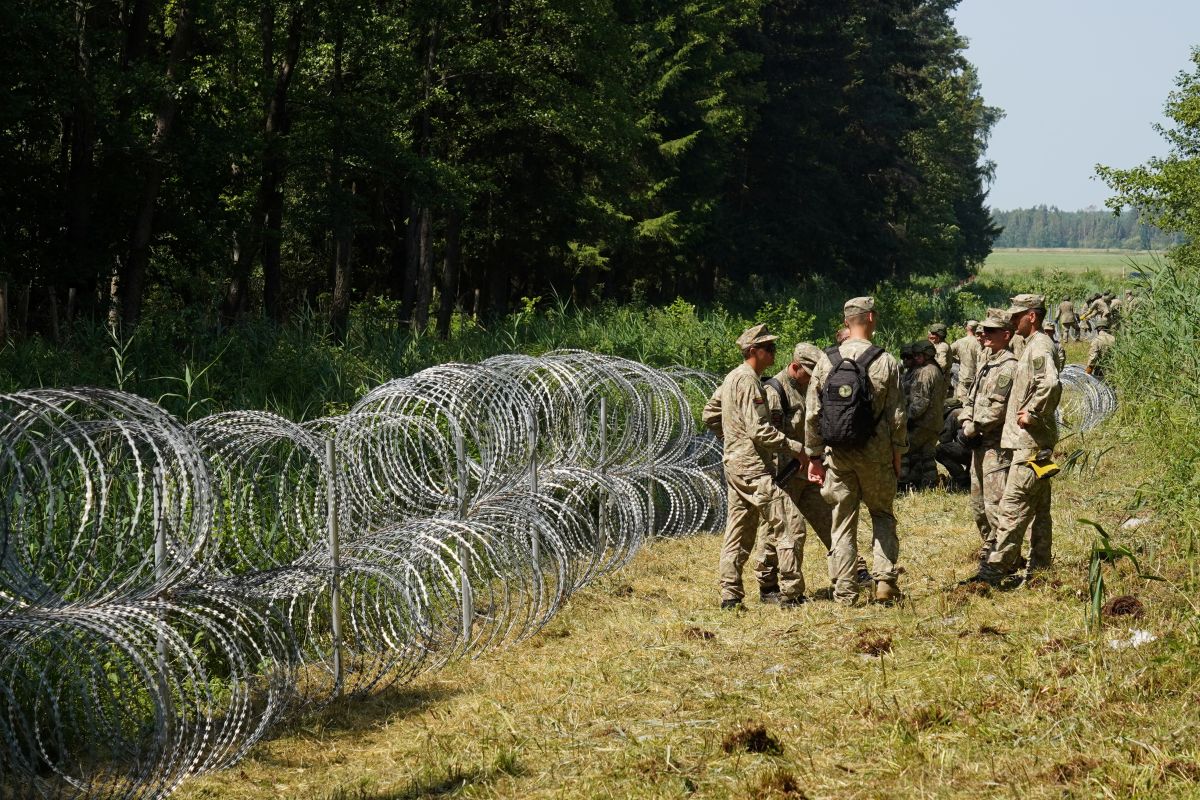Significance of the Immigrant Influx at the Border with Belarus to Regional Security
EU and NATO countries bordering Belarus, in particular Lithuania, have been struggling for several weeks with an influx of irregular migrants, induced by the Belarusian authorities to try to cross the border into the EU. Moreover, the regime may try to use the situation in Afghanistan and refugees from that conflict to exacerbate the border crisis. This would worsen the already tense relations between Poland, Lithuania and Latvia on one side and Belarus on the other, and across the region.
 Photo: Janis Laizans/Reuters
Photo: Janis Laizans/Reuters
What is happening on the border between Belarus and EU countries?
Lithuania, Poland, and Latvia are struggling with a significant influx of irregular migrants who, with the help of Belarusian border services, are trying to cross the border illegally. More than 4,000 people have been detained on the Lithuanian border, mainly Iraqi citizens. Poland has recorded more than 2,000 detainees, mostly citizens of Afghanistan.
A state of emergency related to the border situation has been in force in Lithuania since the beginning of July. The Latvian government introduced it for regions bordering Belarus in August. In addition, both countries have implemented regulations enabling their border services to return the detainees to Belarus, which they consider a safe country with respect to these migrants. Poland has sent additional border guards to protect the border zone, assisted by the military. The situation at the EU-Belarusian border may worsen in the coming weeks with refugees from Afghanistan after the Taliban seized power.
What is likely to happen in the coming months on the border?
For the Belarusian authorities, maintaining the migration-management crisis is an element of retaliation against Poland, Lithuania, and Latvia for their support of the repressed opposition and the related EU sanctions. In addition, Russia will take advantage of the situation by controlling the channels for smuggling Afghans who have fled to Central Asia or its territory. This may become an additional tool of pressure on the countries of NATO’s Eastern Flank with the goal of initiating political divisions.
Given the continuing tensions between the border services of Belarus and the EU/NATO countries, concerns about an incident, such as the use of weapons by border guards, are growing. Such an incident may exacerbate the already high tensions in the security sphere from the planned Russian-Belarusian Zapad drills scheduled for 10-16 September.
How can escalation of the threat be prevented?
The Belarusian authorities may be interested in striking an agreement on holding back refugees only on the condition that at least some of the EU sanctions are lifted. However, as long as repression of Belarusian society continues, lifting the sanctions will be very difficult. Poland and the Baltic states should lobby the EU for a solution that bypasses the Belarusian regime and consists of financial and infrastructural support for the countries of origin of the migrants or neighbouring countries.
Poland, Lithuania, and Latvia should also increase protection of the border with Belarus and expand cooperation in this area between their border services and military assigned to protecting the zone, taking into account relevant norms of international law, including humanitarian aspects. It is also worthwhile for all three countries to seek substantial support from Frontex. They should also expand intelligence and counterintelligence cooperation in the area of counteracting threats, including terrorism and human trafficking, as it pertains to irregular migration.


